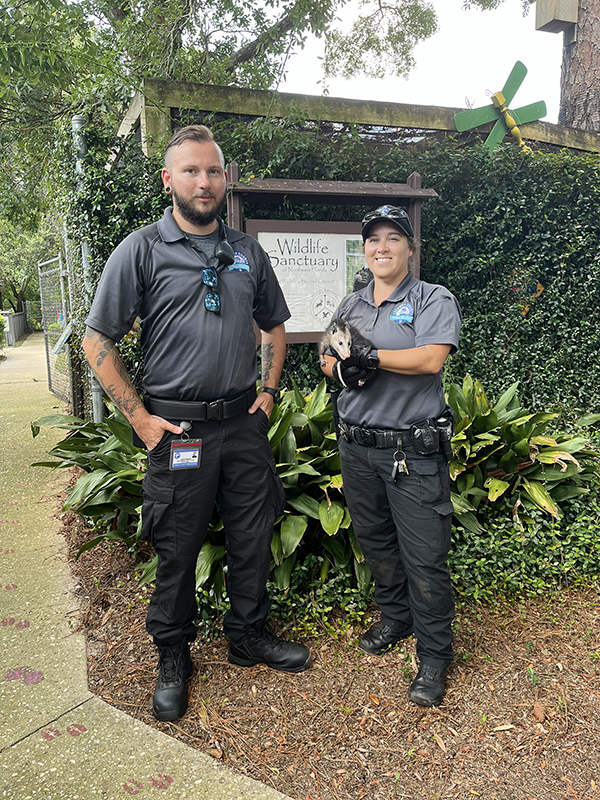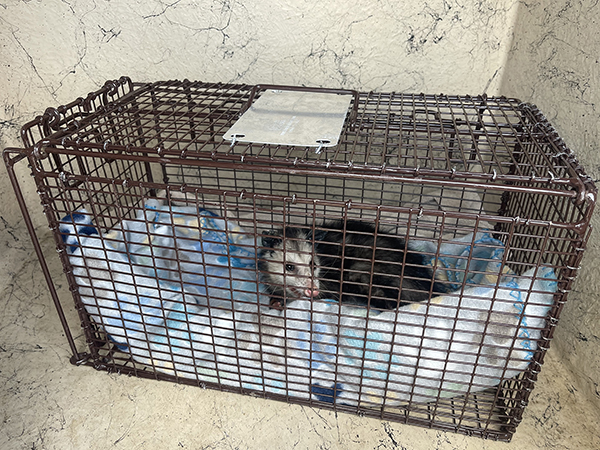Escambia County Animal Welfare officers rescued an injured baby opossum from a trap this week, highlighting the potential unintended dangers of certain types of animal traps.
Animal Welfare received a call Tuesday, Aug. 6 reporting the injured opossum, which was stuck in a mole trap in a Pensacola resident’s yard. The opossum’s front leg and paw were severely injured, so officers worked quickly to free it from the trap and transport it to the Wildlife Sanctuary of Northwest Florida to receive veterinary care.
“There’s no telling how long it had been dragging this trap around,” Lead Animal Welfare Officer Sgt. Merideth Roberson, who responded to the call with Animal Welfare Trainee Officer Josh Clayton. “And the trap was twice its size, because it’s just a baby.”
Sgt. Roberson said the trap was designed to catch underground moles, but it did not appear to be set up correctly. Without a key to the locked trap, Sgt. Roberson and Officer Clayton had to pry the trap open with a screwdriver and free the opossum’s injured paw.
This is not the first call like this Sgt. Roberson has experienced, with examples including kittens, dogs, or even snakes caught in sticky traps or other rat traps. Sgt. Roberson said not all pest or rodent traps are bad, but she said this is an opportunity to encourage people to research the kinds of traps they’re using and consider humane options.
“Sometimes the traps you’re using, they trap other animals that you’re not trying to catch, and then those animals suffer the unintended consequences,” she said. “I think if people would just do more research about the kind of traps they’re using, there are humane traps where an animal doesn’t have to suffer physically or mentally – because it is traumatic for them to be trapped and in pain.”
Sgt. Roberson was especially glad to be able to help the opossum since it’s one of her favorite animals – along with one of the most misunderstood, in her opinion. According to the Humane Society of the United States, opossums are also extremely resistant to rabies and are much less likely to carry rabies than raccoons, bats and other small mammals.
“They eat ticks and fleas, and they’re just a cool little animal to have around,” Sgt. Roberson said. “They’re just so misunderstood. They just open their mouth and show their teeth, but it’s really because they’re scared and just want to be left alone.”
Escambia County Animal Welfare Director John Robinson said this is just one of many examples of his team going above and beyond to care for animals in Escambia County.
“Our Animal Welfare team truly cares about the well-being of all animals in our community, whether they are household pets or wild animals,” Robinson said. “I definitely encourage residents to do research before setting traps that may have unintended consequences for animals or even pets, which will hopefully help us avoid unfortunate calls like this in the future. Thank you to Sgt. Roberson and Officer Clayton for their quick response, and to the Wildlife Sanctuary for their continued partnership and dedication to helping animals in our community.”


